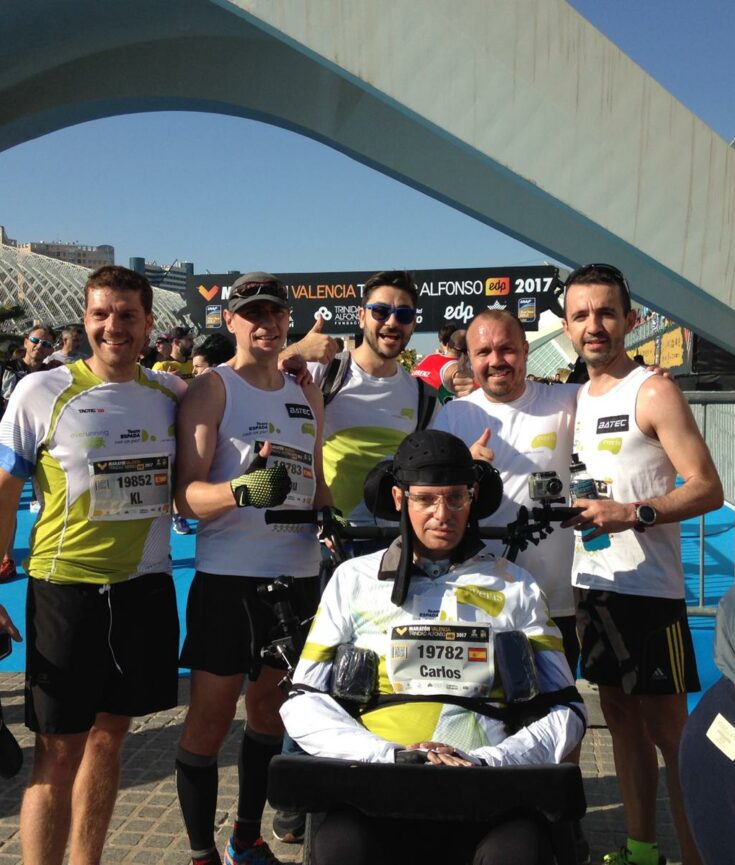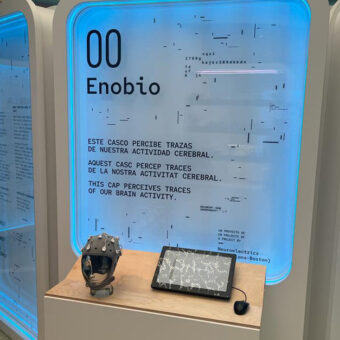Some years ago, the world was frozen with the “ice bucket challenge”. Liters of water and ice were dumped over thousands of people’s head to promote awareness and raise funds for the investigation of amyotrophic lateral sclerosis, also known as ALS.
The challenge, as you may remember, encouraged nominated participants to be recorded on video while having a bucket of ice water poured over their heads. The challenge went viral on social media due to how it functioned, obligating participants to nominate others to do the same and donate money to ALS research after finding themselves in a cold, icy, yet refreshing puddle of goodwill.

ALS is a disease that leads to the death of the neurons responsible of controlling voluntary muscles. It is a difficult to diagnose disease with currently not a well-established procedure for diagnosis. Signs and symptoms of ALS usually appear gradually and in general each person with the disease feels different symptoms, especially the first stages. Some common early symptoms are swallowing problems, muscle cramps, difficulties holding the head up or keeping good posture. Causes of ALS are currently under study, a very small percentage of ALS is inherited, while the rest have no known cause, coming from gene mutation, protein and/or immune response unbalances. As the disease evolves it provokes severe complications. ALS can completely paralyze the muscles provoking serious breathing problems and difficulties in speaking and eating. To date ALS still has no cure, and on average death comes five years after symptoms begin.
ALS is a terrible disease and Carlos Espada has suffered from it since 2007. He is a true example of perseverance, determination and courage. Carlos was a brilliant professional (youngest partner ever in Everis at just 28 years old), father of a son and with a daughter on the way when the ALS diagnose arrived. He was passionate about sports, in particular kickboxing and Karate, of which he had been a champion in Spain. He was 32 and his life had suddenly changed. However, ALS hadn’t stopped him from facing new challenges and having a positive attitude towards life. Now Carlos moves with a wheelchair and speaks through a speech communication device that he controls with his pupils. In 2012 he created, along with the help of Everis and his two best friends, “Team Espada”. The Marathon of Madrid was their first objective and since then they have completed two marathons each year, totally twelve by the end of 2018. Last year, together with other 27.000 athletes they participated in the Marathon of Valencia.

Carlos’ computer helps him to speak, but it cannot show how he feels. He cannot share with his team, his family and friends, his affection the time they are together or the emotions he goes through during a marathon.
So Everis decided to launch a new disruptive initiative: UBIMIND. This initiative unites Artificial Intelligence, brain-computer interfaces and robotics. It’s purpose was to make a difference by changing the lives of people with these technologies, specifically to demonstrate that BCI technologies regarding emotions work outside the laboratories in hard conditions like a marathon, something that nobody had done before. Therefore, providing the ability to transmit someone like Carlos’ emotions to his friends and family.
Starlab and Neuroelectrics wanted to take part in the adventure and measure the emotions of Carlos all along the race. To that effect we used Enobio, our wireless, wearable electrophysiology sensor system for the recording of his brain (EEG) and heart (ECG) activity. Starlab analyzed Carlos’ brain and heart activity being able to identify six emotional states: excitement, tension, frustration, tiredness and satisfaction, that were monitored during the race. It was possible to detect when he was particularly tired or the moments of excitement when for example, he saw his family or friends supporting him.
Team Espada crossed the finish line with a time of 4 hours and 35 minutes. As always Carlos is ready for the next challenge. Now his family, friends and supporters can share and understand him as well.
Here is the video of the UBIMIND project of Carlos Espada
Learn more about emotions and how to detect them in the EEG:
1) So, what is finally an emotion?
2) Emotion Recognition Using EEG
Currently, Everis is working to move a wheelchair and connect minds with the IoT environment using BCI technology. If you want to learn more about UBIMIND or other Everis initiatives, you can take a look at their website. Everis website



